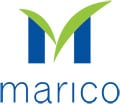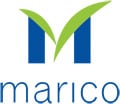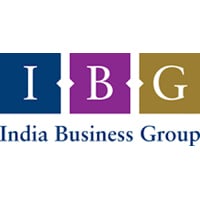
India Teams 2019

| Marico








Marico
In March 2017, Marico invested in the start-up ecosystem by acquiring a 45% stake in Beardo, a men’s grooming brand that sells beard oils, beard waxes, soaps and other grooming products for men’s facial hair. In July 2017, Marico acquired hair styling brand Isoplus for over R360m (US$5m) from JM Products in South Africa. In November 2017, Marico entered into a co-branding agreement with Kaya for a new range of products, Kaya Youth O2. In April 2018, Marico acquired a 22.5% stake in health and wellness platform RevoFit. Regarding arbitrations, Marico won an arbitration against Dani Wooltex in Bombay for a property valued at Rs.1bn (US$14m). In May 2018, Marico successfully restrained a vlogger from disparaging its products on YouTube by obtaining an order from the Bombay High Court. For regulatory challenges, the team actively influenced industry bodies to challenge the notification under the Drugs and Cosmetics Act banning advertisements of Ayurvedic Drugs which was stayed by the Bombay High Court. Marico also launched approximately 70 products in the last financial year which ranged from food product to cosmetics. This led to Marico now owning 15 brands.
Legislations, regulations and policies governing business operation (across sectors) have undergone significant changes in the past two years and, we expect further changes over the coming 2-3 years. Without a doubt, the regulatory environment in which a company operates is an external factor which cannot be overlooked by any compliant company. Some examples of legislations and policies which have impacted Marico business and the legal team response to the same are herein below: Food legislation: The regulations to the Food Safety & Standards Act, 2006 have undergone an overhaul. To make the legislation more in line with Codex and other international standards and laws, the Food Safety & Standards Authority has taken out a plethora of new regulations keeping consumer safety and international standards in mind. These gradual changes have affected most basic aspects of the food business, i.e., its packaging and its advertising. The legal team was in constant interaction with the regulator and the industry regarding the impact of the regulation on the Marico business and address the practical concerns on the implementations. The team also kept stakeholders updated and effected changes in a systematic manner so as to minimise write offs. Environmental legislation: The ban on single use plastics and buy-back of plastic by the company has led to major changes in the supply chain of businesses. In light of this, Marico along with other industry members have engaged with the regulator towards the formulation of the policy for recycling and safe disposal of the plastic waste. Goods and Services Tax: In 2018, the GST came into force which has impacted businesses of all sizes. With this labyrinth of change in the indirect tax sphere, there was a change and amendments to the documentation of agreements etc. Privacy Bill: While the Personal Data Protection Bill is yet to receive a nod from Parliament, its passing by the legislature is a matter of time. The developments in this regard are being closely tracked, and the business is being prepared for improving security protocols this year to protect consumer data, like email addresses, passwords and other personally identifiable data amongst other things.
Compliance tracking and management: Large organisations with numerous manufacturing units are inundated with compliances under various laws, the compliance of which is imperative for the continuity and the success of business. At Marico, a legal compliance tool has been deployed to ensure compliance at all units. IP management system: Marico has an automated tool to record and keep track of its IP. This has permitted us to rationalise the IP portfolio, which over a period accumulated thousands of trademarks. As a result, potential cost saving to the company of more than Rs. 1 crore has been assessed. Litigation Management System: In order to reduce dependency on outside counsel as well as create a long term repository of dispute, a LMS has been put in place. The system gives regular updates on, upcoming hearings allowing the team to be able to take timely actions. Online counterfeiting: Counterfeiting, especially on new channels like e-commerce, is becoming an area of concern for most FMCG companies. A tool has been deployed whereby a third party scans e-commerce portals for potential counterfeits, and information is provided to us for further action. Since the deployment of the tool, we have seen a reduction in the e-commerce counterfeiting. From a total of 184 instances of counterfeiting, by July 2019, we have completely stopped receiving counterfeit complaints from certain websites and the total number of complaints has been reduced to five.
For any successful in-house legal team, its culture and ethos has to be consistent with, and compliment the company’s culture. The culture of the legal team is guided by Marico’s values. With these values as a backbone, the legal team has been able to adapt and flourish in a volatile, uncertain, complex and ambiguous economic, regulatory and political environment. The legal team at Marico acts not only as a hedge function, but gives the business a competitive advantage. It operates on the philosophy of innovate, foster and disrupt. As a new age legal team, it is a well balanced mix of legal acumen and commercial understanding. It is one that is able to weigh risk and reward, and engineer solutions rather than be identifiers of problems and being risk averse. Taking calculated risk, allows the business to move away the run-of-the-mill behaviour and disrupt the business status quo, adding to long term gains. In the past year, this philosophy took shape and was marked by a number of achievements for the legal team both externally as well as internally. For instance, all three verticals of the legal team were either individually or, as a part of a larger business team, recipients of the most coveted Marico awards: “Dare to Try”, “Marico Values” and “Dare To Disrupt”. By being a part of the organisation and its goal as a positive contributor has reflected in the engagement of its members. In 2019, a survey was conducted by Aon Consulting and the engagement of the legal team was found to be 100%.